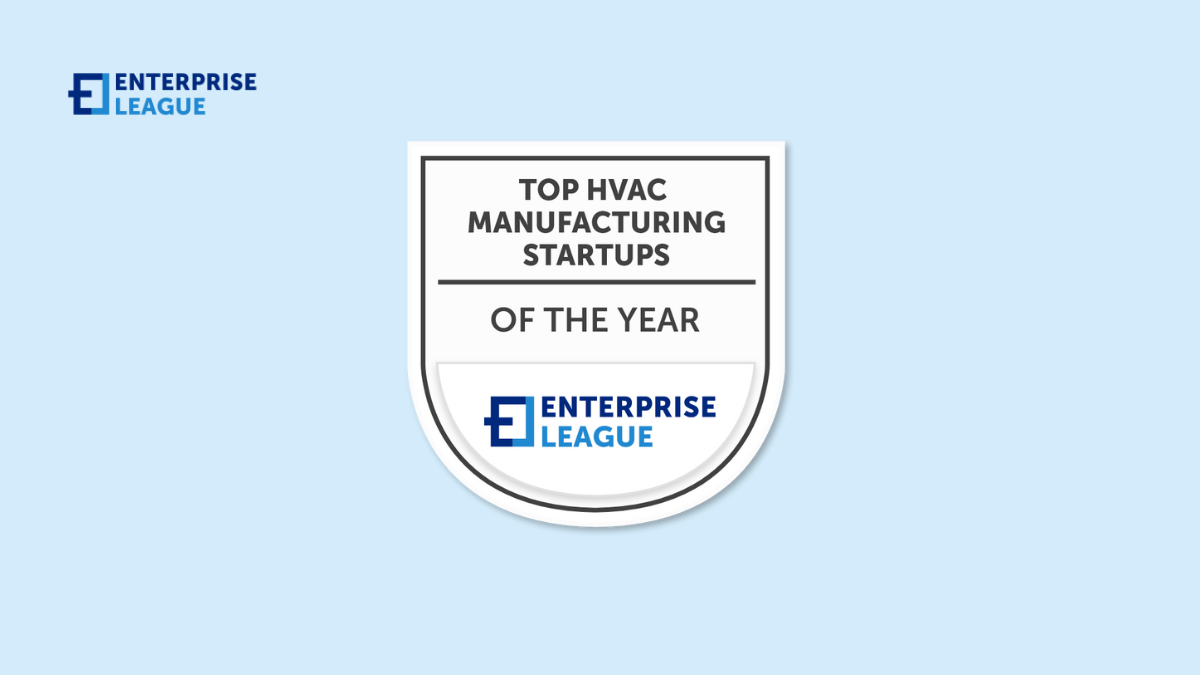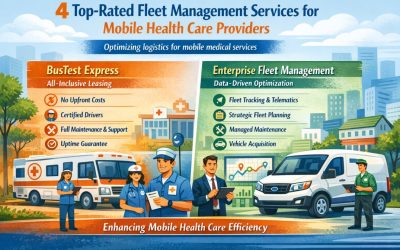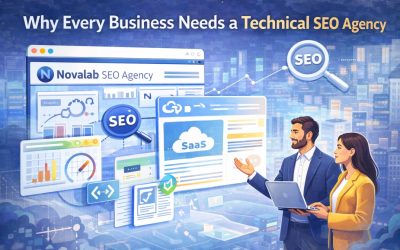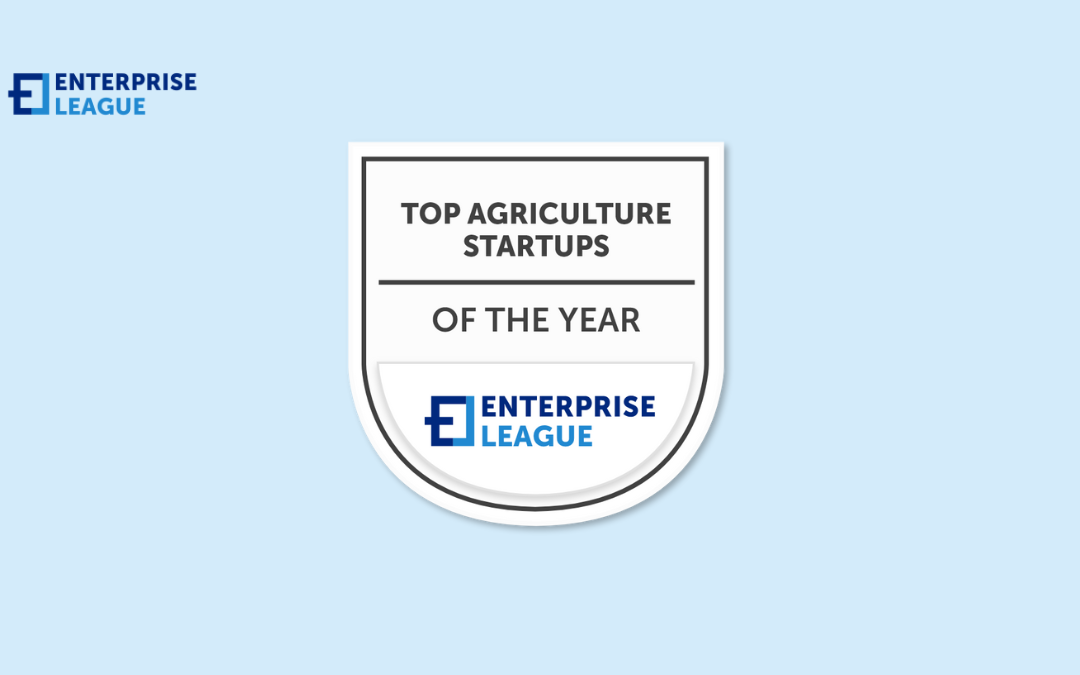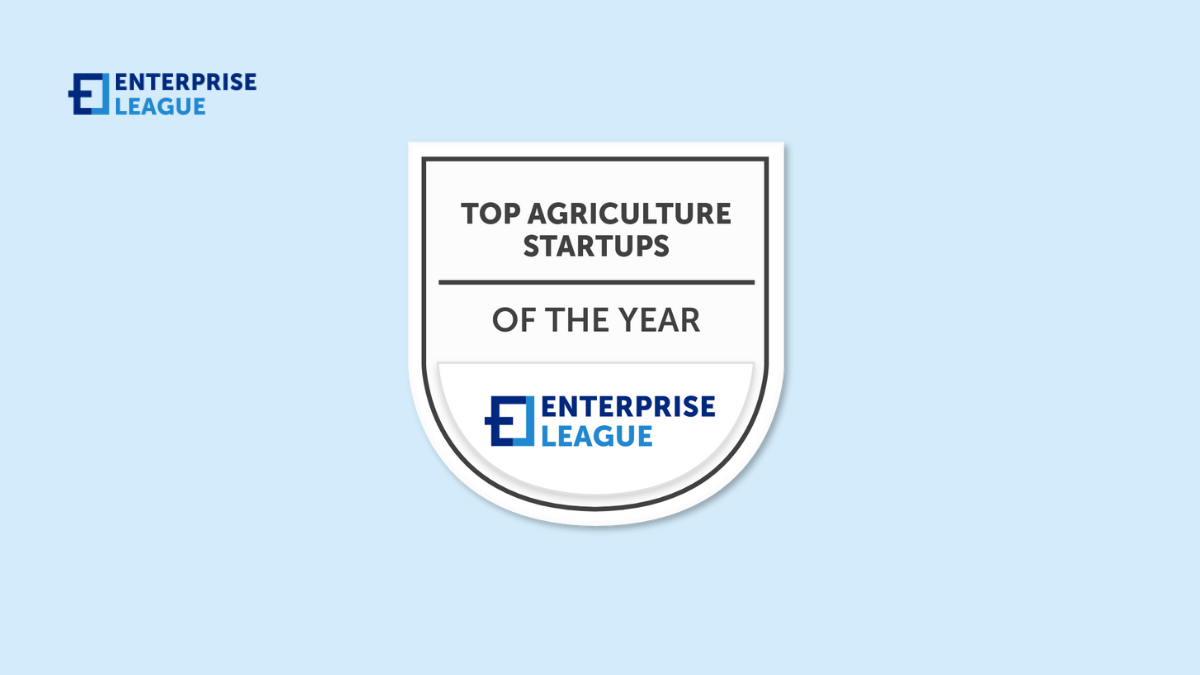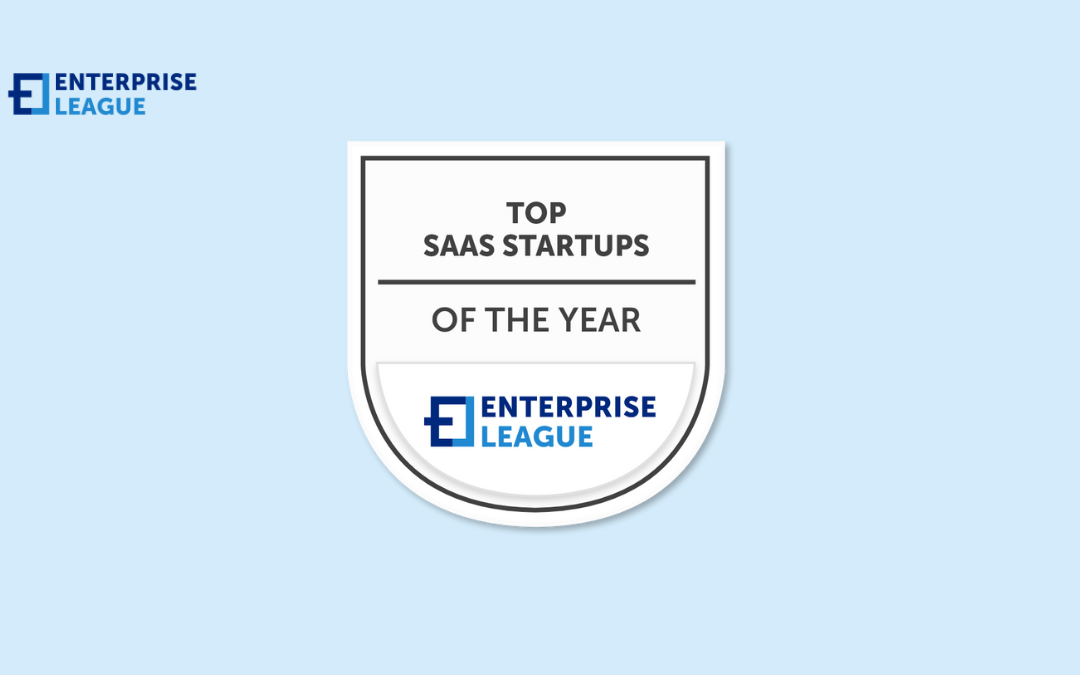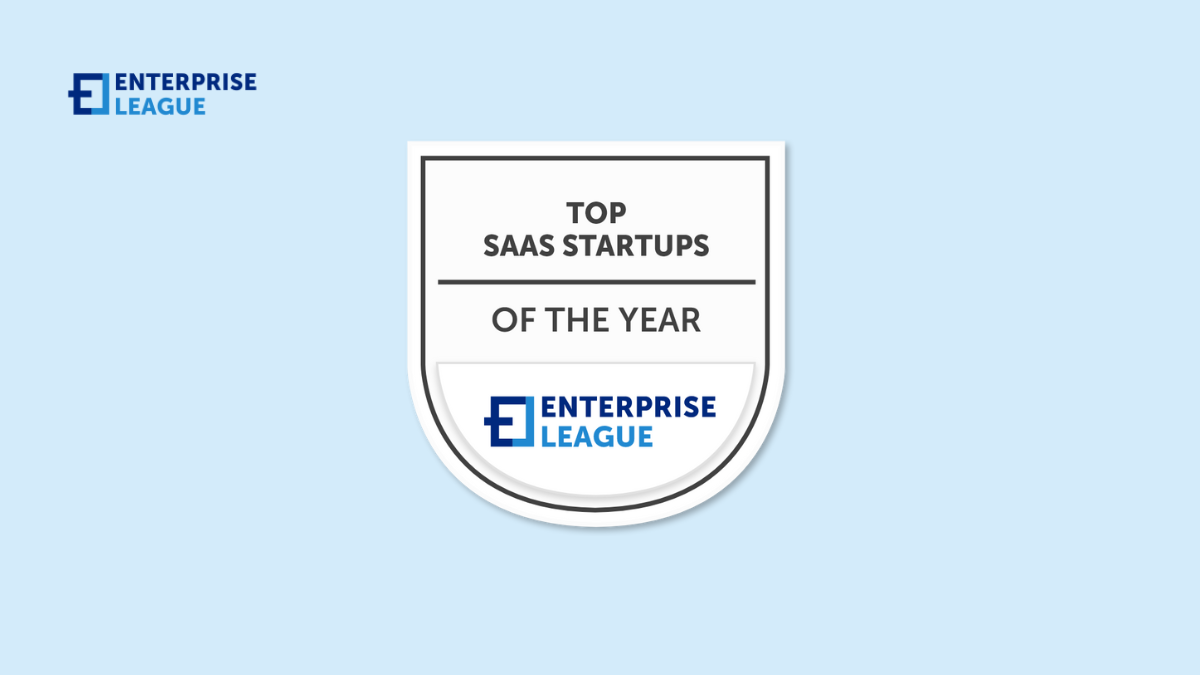If you're managing or owning a multifamily property, your laundry provider plays a much bigger role than it might seem at first glance. For those searching for the best alternatives to CSC ServiceWorks for apartment laundry, there are several reliable providers...
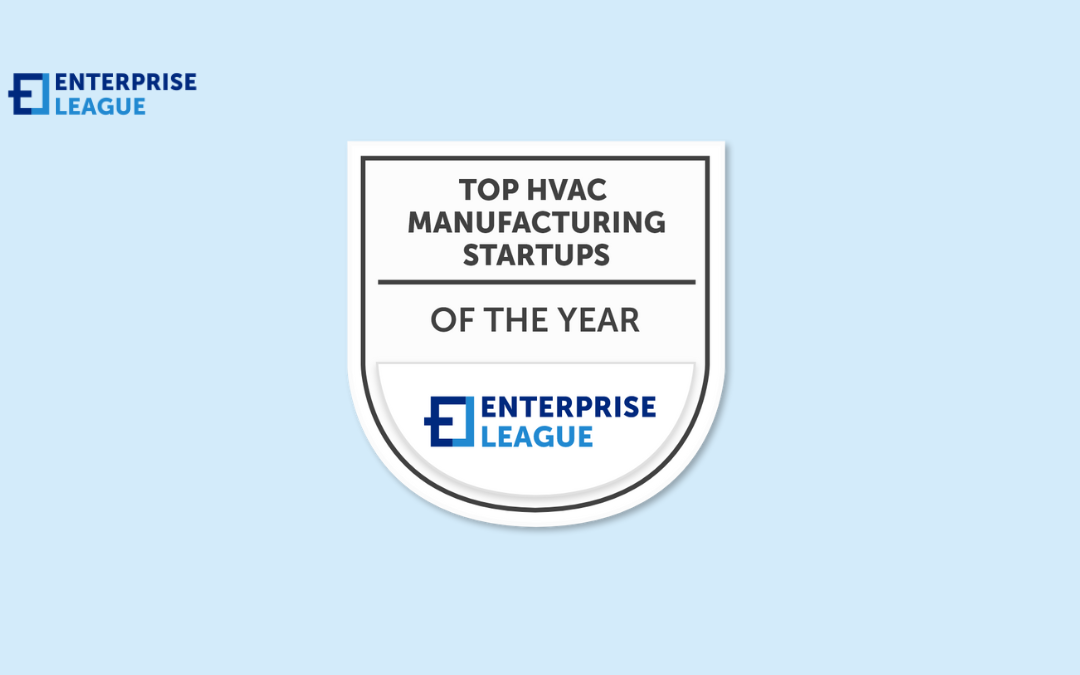
26 thriving HVAC startups that you should now (2025)
The HVAC manufacturing industry has grown significantly over the years as consumers and companies have become more concerned with their environment. More people are purchasing energy-efficient products that will help them reduce their carbon footprint.
This has resulted in a greater demand for products that can provide better indoor air quality, which can be achieved through the use of HVAC manufacturing startups. HVAC manufacturing startups have been around for quite some time now, but they are growing rapidly due to the high demand for their services by consumers all over the world.
If you’re looking for HVAC manufacturing startups in your area then look no further because there are many great ones out there that can help you choose what type of unit will work best for your home or office building, and the best ones for these years are featured in this article.
The most innovative HVAC manufacturing startups for 2025
HVAC manufacturing startups are the companies that are dedicated to creating innovative products and technologies. The main goal of these companies is to create efficient and effective solutions for your home or office. They have different types of engineers, designers, and product managers in their team who work together to come up with new ideas.
More specifically, HVAC stands for Heating, Ventilation, and Air Conditioning. This means that HVAC manufacturing startups produce products that are used for heating, ventilation, or air conditioning. The market is pretty huge, as people need these devices in their homes every year. In fact, it’s a multi-billion dollar industry with many opportunities for growth and development.
Quilt
Founded in 2022, Quilt is tackling the challenge of modernizing climate control in residential spaces. Traditional HVAC systems can be bulky, inefficient, and difficult to control while existing ductless systems often sacrifice style for functionality. The company’s innovative approach combines advanced heat pump technology with artificial intelligence to create a more responsive and energy-efficient system. Their AI algorithms learn from user preferences and patterns, automatically adjusting temperatures throughout the day to maximize both comfort and energy savings.
Quilt’s design philosophy prioritizes both form and function. Unlike traditional heat pump units that can be eyesores, their system is designed to blend seamlessly with modern home décor. This attention to aesthetics makes their solution particularly attractive to design-conscious homeowners.
UpSmith
UpSmith provides a software platform called Boost, built specifically to help skilled trades companies scale amid labor shortages. UpSmith targets businesses in HVAC, plumbing, electrical, construction, facilities maintenance, and similar technical service fields struggling with recruitment and retention issues. The Boost platform streamlines attracting, hiring, training, and managing trade professionals to combat chronic talent deficits in these growing industries.
By combining customized onboarding curriculum, in-house technical training programs, tailored HR policies, and digital tools to automate administrative tasks, UpSmith offers an all-in-one workforce development solution. This enables skilled trades companies to rapidly upskill employees, increase productivity, improve quality standards, and expand capacity to take on more clients and contracts.
Dandelion Energy
Dandelion Energy is an HVAC manufacturing startup that proudly works with customers to create personalized geothermal installations for their homes. The Dandelion geothermal system is a smart, affordable alternative to heating or cooling your home with electricity and gas.
The team of this HVAC manufacturer will come to your home and install a geothermal system that instantly heats, cools, and provides hot water. They can give you immediate comfort, no waiting for your system to heat up. Consequently, your energy bill will drop, and you can rest easy knowing it’s the lowest cost heating and cooling option available.
BlocPower
BlocPower with all-electric heating and cooling is upgrading America’s buildings to be smarter, greener, and healthier for all. This is one of the fastest-growing HVAC manufacturing startups and so far it has completed energy projects in 1,200+ buildings and delivered results ahead of schedule and under budget.
Moreover, BlocPower has developed proprietary software that they use for analysis, leasing, project management, and monitoring of urban clean energy projects. That way its customers are saving 20-40% on their energy bills each year.
Exergyn
Exergyn significantly impacts global air quality and climate change for the better by designing and developing SMA core technology so its global partners can transform their product offering to be more environmentally friendly, without compromising on cost, weight, size, or efficiencies.
This HVAC manufacturing startup is a pioneer in the commercial-scale application of shape memory alloys (SMA). By developing their game-changing product applications across many industries, the team of Exergyn significantly impacts global air quality and climate change for the better.
dPoint Technologies
A world leader in energy recovery technology – dPoint Technologies, fuel cell membranes capture the power of buildings’ exhaust air for use in heating and providing hot water for buildings. Their solar energy recovery ventilators can improve the energy efficiency and air quality of your home or business by transferring heat and humidity between the intake and exhaust.
Until today, dPoint Humidifiers have been used in thousands of fuel cell systems worldwide and continue to build a technology platform so they can provide humidification solutions for fuel cell system designers and integrators.
SinoGreen
SinoGreen is another rising HVAC manufacturer that offers a wide range of heating, cooling, and other HVAC products to the commercial, industrial, and agricultural markets. All of their product lines create a better environment for your plants or animals with clean air and lower heating/cooling costs.
They develop, produce and distribute axial ventilation fans, air heater units, air circulation fans, air inlets, air filters/traps, cooling pads, poultry houses, evaporative air coolers for the greenhouse, livestock buildings, and swine houses, industry, factory, workshop in particular.
SkyCool
SkyCool is driven by the mission to deliver sustainable, energy-efficient cooling solutions to customers interested in reducing energy costs and carbon footprint. To achieve that they are harnessing an untapped renewable resource which is improving the efficiency of all cooling systems.
More specifically, their panels turn the sky into a renewable resource and reduce the electricity use of air conditioning and refrigeration systems. This HVAC manufacturer is a perfect example that using technology, experts can bring efficient, climate-friendly cooling to all parts of the globe.
KAD Air Conditioning
KAD Air Conditioning is one of the most prominent HVAC manufacturing startups of Ducting in the UAE. The primary principle of this HVAC manufacturer is based on offering its customers high-quality, customized ducting solutions, all of which are delivered to them on time.
What makes them one of the best HVAC manufacturing startups is the fact that their manufacturing process conforms to the highest international standards and specifications, which is can be seen in their ISO certification. Today KAD Air Conditioning is growing and recognized as one of the most trusted names in Ducting in the Air Conditioning industry of the UAE.
What makes them one of the best HVAC manufacturing startups is the fact that their manufacturing process conforms to the highest international standards and specifications, which is can be seen in their ISO certification. Today KAD Air Conditioning is growing and recognized as one of the most trusted names in Ducting in the Air Conditioning industry of the UAE.
Blue Frontier
Blue Frontier by developing a truly smart air conditioning system changes the concentration of a salt solution and creates cooling with minimal energy requirements. Further explained, the air conditioner will require less than half the electricity than a conventional system.
Furthermore, their A/C doesn’t consume electricity when it’s working and the system can decouple humidity control from air temperature control, a feat difficult to accomplish with your conventional A/C technology. This ensures that your and all users will never feel too hot or too cold, but just right all the time.
Hydronic Shell
Hydronic Shell by introducing a new category of HVAC and facade system that will enable deep energy retrofits of existing multifamily buildings transforms the construction industry for good. This way the team of Hydronic Shell dramatically reduces greenhouse gas emissions from cities around the world.
The system that this HVAC manufacturing startup developed will reduce the heating and cooling energy consumption of existing buildings by an order of magnitude while achieving major improvements in other key areas of performance, including thermal comfort and indoor air quality.
MG Cooling Solutions
MG Cooling Solutions is providing a complete solution for air conditioning, air cooling, and ventilation for hotels, office spaces, restaurants, institutes, hospitals, and industrial projects. They provide customized solutions for specific needs and also conduct an energy audit to check on the operational efficiency of all electrical equipment like HVAC systems to save on high electricity bills.
This HVAC manufacturer has a mission to revolutionize HVAC Industry in India with precise engineering calculations to deliver energy-efficient and cost-efficient projects and facilitate healthy Air Conditioning with integrity, honesty, and best ethical practices.
Oxygen8
Oxygen8 is one of the most promising HVAC manufacturing startups that is developing products that improve the health, comfort, and energy efficiency of buildings. One of their most innovative solutions is the Dedicated Outdoor Air System (DOAS) product line that provides fresh, healthy, and comfortable air to offices, schools, and commercial buildings in an energy-efficient way.
The team of this HVAC manufacturer has a history of problem-solving through entrepreneurship, creativity, and green technology, therefore, Oxygen8 introduces a series of smart solutions that help create comfortable indoor environments.
Gradient
Gradient is transforming every home to be more comfortable and healthy without compromising the environment. This HVAC manufacturing startup has a vision for a future where everyone has access to comfortable buildings that are fully decarbonized.
Their launch product is a direct-to-consumer high-efficiency and low-carbon heat pump, with a clever design that means the unit doesn’t obstruct the view out the window and places the noisier components on the outside.
Nationwide Coils
Nationwide Coils is a commercial HVAC manufacturer and supplier of custom and OEM replacement coils you need to keep an eye on this year. They are known for providing excellent customer service, quality HVAC products, quick lead times, and fair and competitive pricing.
Additionally, Nationwide Coils can manufacture any replacement coil for all major OEM brands. Also, for corrosive environments, they offer a range of protective coating options to help prolong the life of your coil.
Tado
Tado is another fast-growing HVAC manufacturing company that makes every heating system smart. Their team strongly believes that unnecessarily wasting energy should be a thing of the past and therefore are creating solutions that optimize home energy consumption without sacrificing comfort.
They have an international team of professionals from diverse backgrounds who develop technologies, set new standards, and challenge the status quo. Additionally, they ensure optimally air-conditioned rooms with no hassle or high costs.
Phononic
Phononic developed a breakthrough technology that is creating new markets and transforming industries with innovative solid-state solutions that disrupt antiquated business models and incumbent technologies.
The team of experts that makes Phononic one of the most innovative HVAC manufacturers are rethinking everything that’s been designed to cool and heat. They are well aware of the benefits of using their solid-state technology, thus, they’ve developed a few different mind-blowing heating and cooling solutions.
ACS Klima
ACS Klima developed innovative air conditioning solutions are used for cooling, heating, ventilation, and processes to improve the condition of the air. Their solutions refer to the process of dehumidification in the indoor environment and provide cooling and heat comfort.
This is one of the leading HVAC manufacturing startups in Turkey, but they also have distributors and branch offices in Russia, Iran, Qatar, Pakistan, Israel, Tunisia, and more. With their solutions, they are combining advanced technology with efficiency and they are saving energy for future generations.
Thermal Care
Thermal Care is another industry expert and value leader in process heating and cooling solutions you must know if you are interested in the HVAC manufacturing industry. This company provides heat transfer equipment for various industries and by offering a wide range of standard, off-the-shelf models and integrated, customized industrial process heating and cooling solutions it specializes in meeting the specific needs of its customers.
They are providing sales assistance to customers that rely on their extensive knowledge of process cooling applications and solutions. After the sale, they are known to offer fast, friendly, and efficient answers to equipment maintenance and service questions.
DewAir Corporation
DewAir Corporation has the vision to create a world where controlling the humidity and temperature in homes and commercial applications such as greenhouses have minimal energy and carbon footprint and is as easy as switching on the lights.
For that purpose, they are bringing to use innovative solutions to reduce the world’s carbon and energy footprints due to heating, ventilation, and air conditioning across the globe by manufacturing outstanding high-performance, ultra-efficient commercial and residential HVAC products.
Trumbull Campbell Associates
Trumbull Campbell Associates is one of New England’s leading HVAC manufacturing startups that are offering superior sales and application support, comprehensive controls, and start-up and service solutions for your HVAC system and building automation needs.
This HVAC manufacturer provides integrated control solutions for commercial and industrial HVAC systems. Moreover, their experienced team designs and writes programs and installs complete HVAC control systems to meet a building owner’s automation needs.
Smart Joules
Founded in 2010, Smart Joules develops wireless sensors and controls that integrate with HVAC equipment. Machine learning algorithms then optimize operating patterns to slash waste while preserving comfort.
By enhancing existing infrastructure performance, Smart Joules enables substantial energy savings with minimal investment. Their intelligent efficiency retrofits provide a high-ROI path to sustainability.
enVerid
Founded in 2010, enVerid develops air cleaning and conditioning modules that enable HVAC optimization techniques like airside economization and ventilation reduction. This slashes electricity demand.
By enabling HVAC equipment to run smarter not harder, enVerid unlocks substantial cost and carbon savings from existing systems. Their bolt-on modules deliver outsized efficiency gains without full system replacement.
Ecosync
Founded in 2021, Ecosync uses machine learning to analyze HVAC sensor data and energy usage patterns. The system identifies wasteful operating situations and automatically adjusts settings for efficiency.
For building owners struggling with energy waste, Ecosync delivers optimization without replacing legacy systems. Their AI layer tunes HVAC components into an efficient, responsive whole. Though early stage, Ecosync targets a major pain point in carbon and costs.
Hometree
Launched in 2019, Hometree provides an all-in-one solution spanning boiler recommendations, financing, installation scheduling, accredited engineers, and aftercare. Customers progress seamlessly from online quote to completed fitting.
By handling the entire boiler replacement process, Hometree simplifies a project notorious for hassle and uncertainty. Their customer-centric approach brings new standards of speed and transparency.
75F
Founded in 2012, 75F develops wireless sensors, cloud analytics, and controls that orchestrate building systems based on predictive modeling and usage patterns. Facility managers gain granular oversight and efficiency.
By unifying and automating operations, 75F enables substantial energy and cost reductions from existing infrastructure. Their system pays for itself through avoided waste and labor.
What all these HVAC manufacturing startups have in common
Even though all of the above mentioned HVAC manufacturing startups are unique in their own way, there are still a few things they all have in common. So let’s find out what all of the best HVAC manufacturers have to offer.
The best HVAC manufacturing startups all have great a product that solves a problem, like how to save money on heating and cooling bills or how to make your home more comfortable.
Furthermore, they understand their customers and their competitors’ customers. They know who their target customers are and what they’re looking for in an HVAC system. They also know who their competitors’ customers are and what kind of products they offer them.
Last but not least, they have a unique selling point (USP). A USP is something that makes your startup stand out from other similar businesses in your industry – something that sets you apart from competitors who offer similar services or products, or who target the same customers as you do.
That being said, we can all agree that the best HVAC manufacturing startups solve real problems that people have every day: warm or cold homes, high energy bills, and poor indoor air quality. These companies create products or services that make people’s lives easier and more comfortable. This includes everything from smart thermostats to energy-efficient windows and HVAC systems with built-in smart features like remote control capabilities.
Discover more creative startups that might interest you:
- Top real estate startups that are changing the real estate industry.
- Amazing environmental startups that are on a mission to save the planet.
- Find out today’s most ambitious SaaS startups worldwide
- Must-know NFT startups that are on the forefront of this new industry.
- Unique Generative AI startups that are going to without a doubt change the world.
Related Articles
Need an Alternative to CSC ServiceWorks for Apartment Laundry? These Are the 5 Best Options
4 Top-Rated Fleet Management Services for Mobile Health Care Providers
As the number of mobile health care programs rises, their success depends on medical expertise and flawless logistics. Challenges like vehicle uptime, specialized maintenance, driver staffing, regulatory compliance and route optimization can overwhelm organizations....
Why Every Business Needs a Technical SEO Agency
Introduction Just having a website isn't enough for businesses today. Companies, especially SaaS businesses, need to make sure their platforms are visible and user-friendly. This is where SEO for SaaS comes in. But SEO isn't just about adding keywords; it requires a...
What Are the Best Value Cleaning Solutions for High-Volume Car Washes? 5 Options for Managers
For high-volume car wash businesses, the right chemical supplier is the backbone of their operations. Today's competitive marketplace demands bulk solutions that are effective, reliable and tailored for maximum throughput. Whether you operate automated tunnels, in-bay...
What’s the Best Parcel Auditing Company? Here Are the 5 Top Options
With shipping costs on the rise and carrier invoices growing increasingly complex, businesses face significant challenges in managing their logistics expenses. Rising costs can often lead to inefficiencies and lost savings. Working with a parcel auditing company is a...

